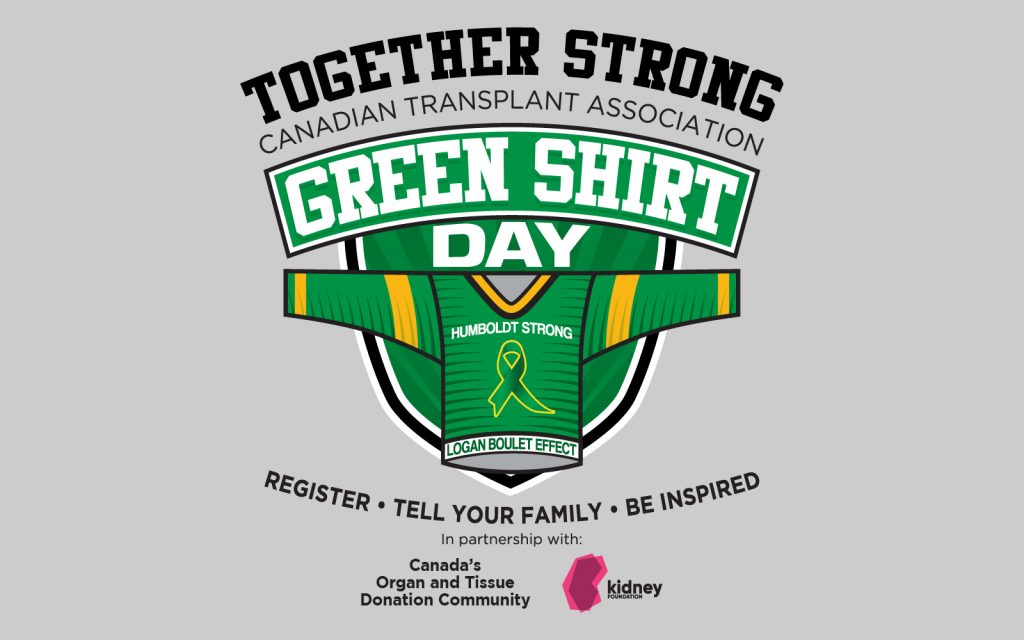A Q&A from the Canadian Transplant Association in honour of Green Shirt Day:
What organs and tissues can be donated in Canada? Organs that can be donated include the heart, kidneys, liver, lungs, pancreas and small bowel. Tissues include corneas, bones, skin and heart valves.
Does my age, medical condition or sexual orientation automatically prevent me from being a donor? No. Everyone is a potential donor regardless of age, medical condition or sexual orientation. In fact, the oldest Canadian organ donor was 92. Even individuals with serious illnesses can sometimes be donors. Your decision to register should not be based on whether you think you would be eligible or not. All potential donors are evaluated on an individual, medical, case-by-case basis.
Can my family overrule my decision to donate? Yes. Your family is most likely to agree to organ donation if they know that it’s what you wanted. That’s why it’s important to register and tell your family your organ donation wishes. There are a number of reasons families override their loved ones wishes. Misinformation about organ donation, discomfort or unwillingness to talk about death and uncertainty if it’s what their loved one wanted leaves the difficult decision to families who may be unprepared to choose organ donation when the time comes.
Why should I register as an organ and tissue donor? To save up to eight lives through organ donation and even more through tissue donation. By registering consent for organ and tissue donation, you give hope to the thousands of Canadians waiting for a transplant. Individuals on the transplant wait list are suffering and without the generous gift of life from an organ donor, they will die. Tissue donors can also enhance the lives of recovering burn victims, help restore sight, and allow people to walk again. Transplants not only save lives, they return recipients to productive lives.
Will doctors still work hard to save a patient who has registered to become an organ donor? Yes. Very hard. The first and foremost concern for health care professionals caring for critically ill patients is to do everything possible to save lives. The possibility of donation is considered only when all lifesaving efforts have failed.
What is involved in the organ donation process and how long will donation take? Once consent is given by the legal next-of-kin, medical tests are completed to determine what organs and tissues are suitable for transplant. The organs are then matched with someone on the transplant wait list and surgery takes place in an operating room at the hospital. The entire donation process, from the time the family agrees to move forward with donation, to recovery, takes about 24 to 48 hours to complete.
Who will receive my organs? Each province’s organ donation program will work with the transplant centre to match the donor to one or more individuals on the waitlist. Medical urgency, blood type, the size of the organ and the relative distance of a prospective match are among the factors involved in the organ allocation process.
Does my religion support organ and tissue donation? Most major religions support organ and tissue donation because it can save the life of another. If your religion restricts the use of a body after death, consult your religious leader: these restrictions may not include organ and tissue donation, if the donation could save another life.
Has COVID-19 impacted organ donor registration? Yes. Organ donor registrations numbers are estimated to have decreased by 39% in 2020 compared with the previous year. In person opportunities to register decisions and awareness raising events were significantly limited by the pandemic. Now more than ever Canadians are reminded to go online to register their decision about organ donation and be sure to have that all-important conversation about donation with family and loved ones.
What is Green Shirt Day? Read the article below to learn more.
